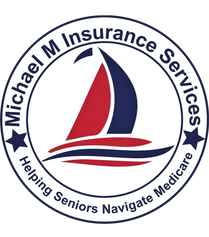Does Medicare Cover Medications?
Choosing the Right Medicare Coverage
Selecting the best Medicare coverage depends on factors like your
healthcare needs, budget, and preferred providers. You can choose
between:
- Original Medicare (Parts A & B): Allows you to see any doctor or
hospital that accepts Medicare but does not include prescription drug
coverage (Part D) or additional benefits. - Medicare Advantage (Part C): Offers bundled coverage with
potential extra benefits but may require using a network of providers. - Medigap (Medicare Supplement Insurance): Helps cover
out-of-pocket costs not covered by Original Medicare, such as
copayments and deductibles.
Key Medicare Enrollment Periods
It is crucial to enroll in Medicare at the right time to avoid penalties and
ensure continuous coverage:
- Initial Enrollment Period (IEP): A seven-month window starting
three months before your 65th birthday month. - General Enrollment Period (GEP): From January 1 to March 31
each year for those who missed their IEP. - Annual Election Period (AEP): From October 15 to December 7,
allowing you to switch or enroll in Medicare Advantage and Part D
plans. - Open Enrollment Period(OEP): From January 1 to March 31 for
those who missed AEP and want to make certain changes. - Special Enrollment Period(SEP): Can be used anytime during the
calendar year for those that meet certain criteria such as moving to a
new service area.
Finding Help with Medicare
Understanding Medicare can be complex, but you don’t have to do it alone.
Licensed Insurance Brokers, Medicare.gov, and state health assistance
programs can provide guidance tailored to your specific needs.
By taking the time to explore your Medicare options, you can make
informed decisions that ensure you receive the healthcare coverage that
best suits your lifestyle and budget.
Do I have to sign up for Medicare?
It depends upon your current coverage. If you are employed and your
employer has over 20 employees then you can delay signing up for
Medicare and avoid penalties.
Does Medicare cover Prescription Medications?
No, You will have to enroll in a stand alone Part D plan or a Medicare
Advantage Plan(Part C) to get coverage.
I want to be able to go to any doctor/hospital, are there networks with Medicare?
There are no networks with Medicare and most doctors and hospitals
accept it. However, Medicare does not cover 100% of services so a
Medicare Supplement or Medicare Advantage plans is advisable.
Mike Miligi- Owner
For over 10 years, Mike has been assisting Seniors and other Medicare-eligible individuals in understanding the ins and outs of Medicare and Medicare Health Insurance options, including Medicare Advantage Plans(Part C), Medicare Supplement Plans(Medigap), Prescription Drug Plans(PartD), and Dental and Vision programs.
Mike is Licensed in seven States and Certified with 11 Insurance Carriers. He has helped thousands of individuals decide on the best course of action for their particular Health Insurance needs. Because Mike is an Independent Medicare Health Insurance Broker, he works for the client, not the Insurance Carriers, and is able to provide his clients with accurate and unbiased Health Insurance options.
Mike recertifies with CMS(The Centers for Medicare and Medicaid Services) annually, regularly completes Continuing Education Courses required by individual State Insurance Departments, and keeps abreast of industry trends and standards to offer his clients the most up-to-date information.

